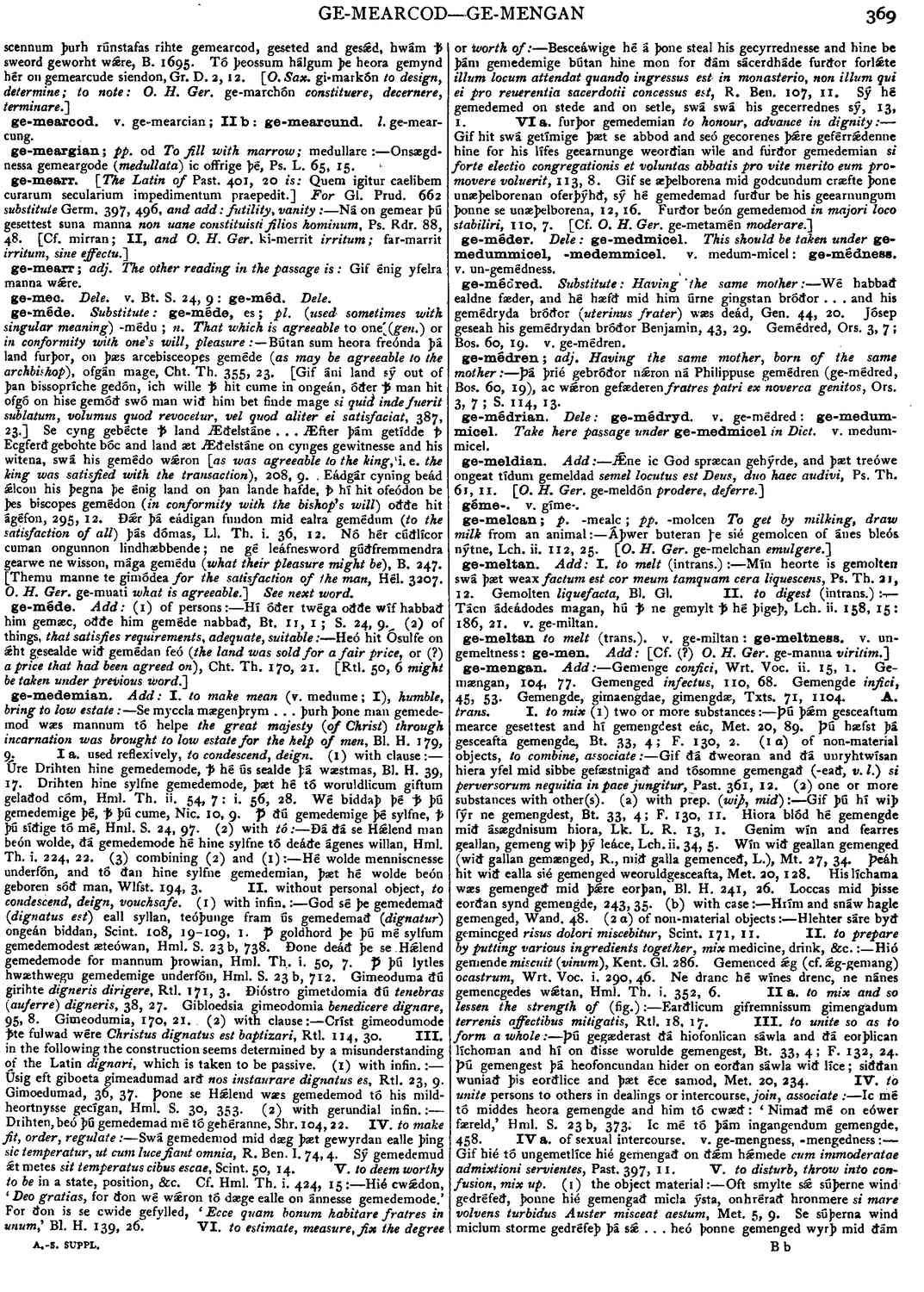ge-méde
- noun [ neuter ]
-
Bútan sum heora freónda þá land furþor, on þæs arcebisceopes geméde (
as may be agreeable to the archbishop), ofgán mage, Cht. Th. 355, 23. [Gif áni land sý out of þan bissopríche gedón, ich wille ꝥ hit cume in ongeán, óðer ꝥ man hit ofgó on hise gemóð swó man wið him bet finde mage si quid inde fuerit sublatum, volumus quod revocetur, vel quod aliter ei satisfaciat, 387, 23.] Se cyng gebécte ꝥ land Æðelstáne . . . Æfter þám getídde ꝥ Ecgferð gebohte bóc and land æt Æðelstáne on cynges gewitnesse and his witena, swá his gemédo wǽron [as was agreeable to the king.i. e. the king was satisfied with the transaction ),
- 208, 9.
-
Eádgár cyning beád ǽlcon his þegna þe énig land on þan lande hafde, ꝥ hí hit ofeódon be þes biscopes gemédon (
in conformity with the bishop's will)
oððe hit ágefon.- 295, 12.
-
Ðǽr þá eádigan fundon mid ealra gemédum (
to the satisfaction of all)
þás dómas,- Ll. Th. i. 36, 12.
-
Nó hér cúðlícor cuman ongunnon lindhæbbende; ne gé leáfnesword gúðfremmendra gearwe ne wisson, mága gemédu (what their pleasure might be), B. 247. [Themu manne te gimódea
for the satisfaction of the man,
- Hél. 3207.
- O. H. Ger. ge-muati what is agreeable.] See next word.
Bosworth, Joseph. “ge-méde.” In An Anglo-Saxon Dictionary Online, edited by Thomas Northcote Toller, Christ Sean, and Ondřej Tichy. Prague: Faculty of Arts, Charles University, 2014. https://bosworthtoller.com/48852.
Checked: 0